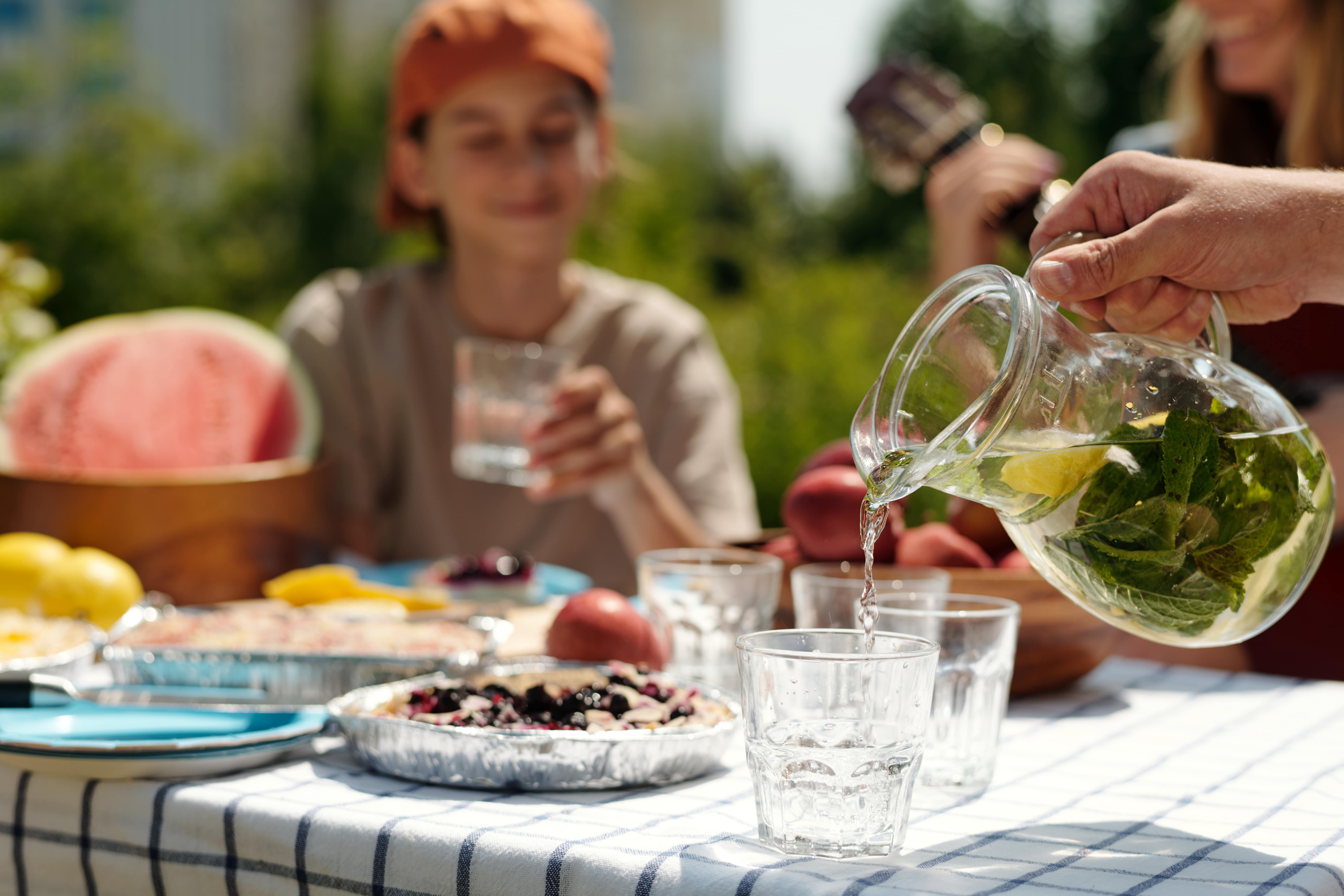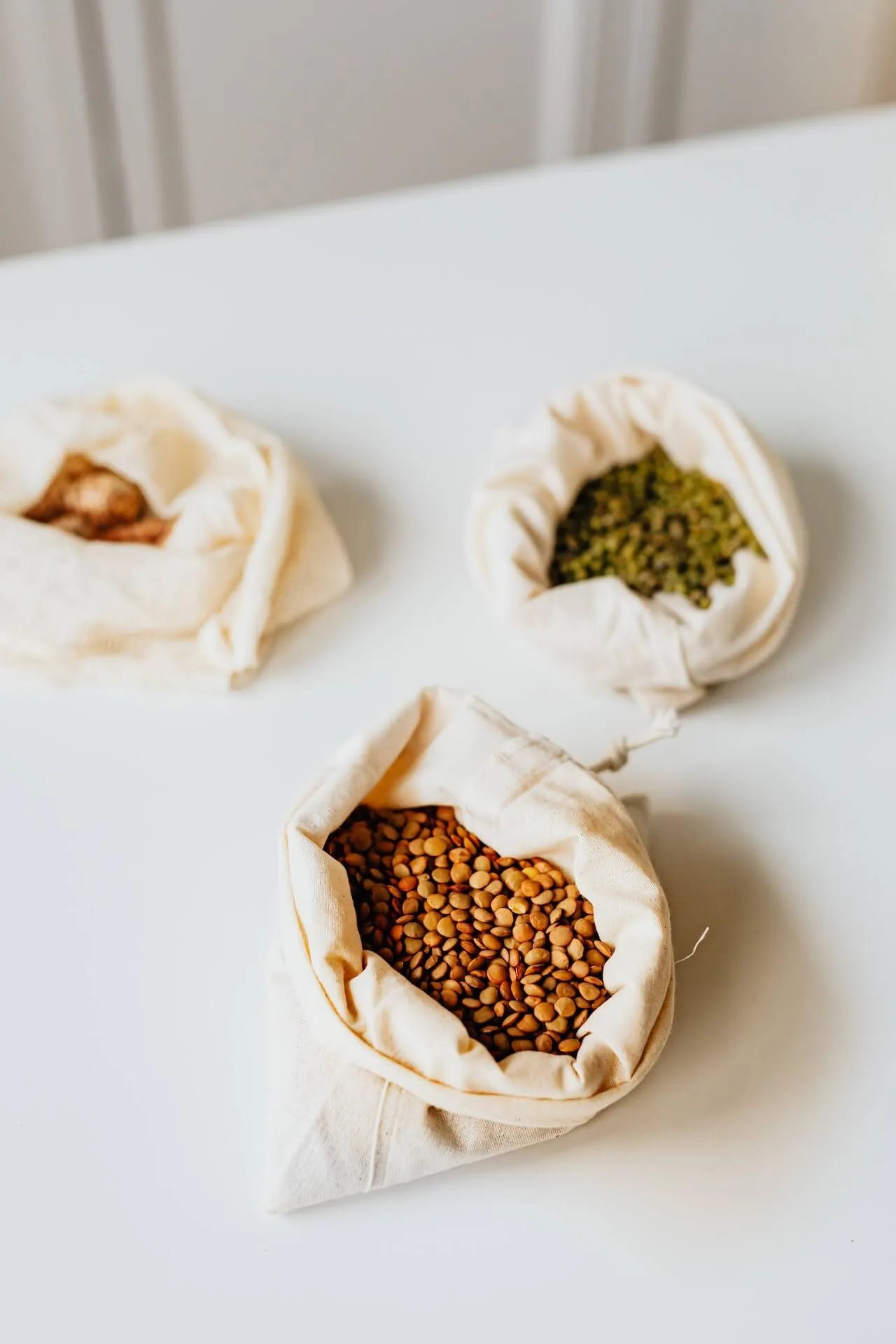Key Takeaways
- Heatwaves can slow metabolism by increasing stress on the body, disrupting sleep, and reducing hydration.
- Hydration, cooling strategies, and light, nutrient-dense meals help maintain energy, support digestion, and support metabolic health.
- Consistent daily habits, like morning sunlight, movement, and bedtime cooling routines, can improve circadian rhythm and recovery, even in extreme heat.
{{mid-cta}}
Late-summer heat can do more to make you uncomfortable; it can quietly work against your metabolism. As temperatures climb, your body has to work harder to keep cool, which can leave you feeling sluggish, disrupt glucose control, and interfere with recovery.
With a few intentional shifts, you can stay cool, energized, and metabolically steady through even the hottest days.
Why Late-Summer Heatwaves Stall Metabolism

Your metabolism runs 24/7, but extreme heat turns up the temperature regulation into a full-time job. As the mercury rises:
- Your body burns more energy to cool itself (thermoregulation).
- Your heart works harder to pump blood to the skin so sweat can evaporate.
- Hormones, digestion, and muscle maintenance can be disrupted under prolonged heat stress.
Dehydration makes this even harder. Even mild fluid loss has been linked to glucose intolerance and increased risk of metabolic syndrome.1,2 One small study found that drinking just 16 oz (500 mL) of water increased metabolic rate by 30%.3 Over a day, hitting about 66 oz (2 liters) of water could help you burn almost 100 extra calories, just by staying hydrated.
Heat also interferes with sleep, a key driver of metabolic health. Warm nights make it harder for your core temperature to drop, which disrupts sleep and throws off appetite-regulating hormones (ghrelin and leptin).4,5 The result: increased cravings, slower recovery, and less efficient energy use.
Hydration & Electrolytes: Your Cooling Allies
Hot weather + sweat = electrolyte loss. Electrolytes (sodium, potassium, and magnesium) are not just for athletes; they’re essential for energy production, muscle function, and blood sugar balance.
Try these hydration strategies:
- Choose low- or no-sugar electrolyte supplements (like LMNT or Nuun). If you have high blood pressure, consult your healthcare provider before adding extra sodium to your diet.
- Infuse water with cucumber, mint, or berries for a flavor boost. Chill it for a stronger taste or add it to sparkling water for a refreshing mocktail.
- Rotate in natural electrolyte sources like coconut water or buttermilk for a light, cooling option.
Lighter, Nutrient-Dense Meals for Hot Days

When it’s already hot, your body is working overtime to stay cool. Heavy meals can slow you down, so aim for lighter, nutrient-packed foods that are easy to digest but still deliver what your metabolism needs.
- Prioritize protein to help stabilize glucose, support hormones, and maintain muscle mass. Lean options like grilled chicken, Greek yogurt, or plant-based proteins can keep you fueled without weighing you down.
- Load up on water-rich produce like watermelon, cucumbers, and tomatoes, which hydrate naturally. Dark leafy greens and berries provide antioxidants to help protect your cells from heat-related stress.
- Choose smoothies for low-appetite days. Blend protein (milk, Greek yogurt, or plant-based powder), fiber ( fruits, veggies), healthy fats (chia seeds, flax, nut butters), and a hydrating liquid for a balanced, cooling meal in a glass.
Light doesn’t mean low-nutrient; in the heat, these meals give your metabolism the building blocks it needs without adding strain.
Smart Movement: Adapted to the Heat
Hot weather doesn’t have to sideline your workouts; it just calls for a smart, heat-adapted approach. Staying active supports metabolism, muscle mass, and glucose stability, but when temperatures spike, consistency matters more than intensity.
Worth with the weather, not against it:
- Move during cooler hours (early mornings or evenings) to keep body temperature in check and protect your circadian rhythm. Bonus: Morning light exposure helps set your body clock for better energy and sleep.
- Dial down the intensity with walking, yoga, Pilates, or mobility work. These activities still raise your metabolic rate, build strength, and support recovery without adding excessive heat stress.
- Get in the water with swimming or aqua-based workouts for built-in cooling and joint-friendly resistance training.
Fuel Wisely for Hot-Weather Workouts
In the heat, your body relies more on carbohydrates for quick energy.
- Have a carb-rich snack 30-60 minutes before you start. Consider picking up items like bananas, dates, or a small handful of dried mango.
- Pair carbs with a little protein (e.g., banana and Greek yogurt) for sustained energy and stable glucose.
The takeaway: adapt your movement, hydrate well, and choose the right fuel so you can keep building fitness without letting heat drain your performance or metabolism.
Circadian & Recovery Strategies

Your circadian rhythm is your body’s internal clock; it helps regulate sleep, hormone release, digestion, and even glucose control. When this rhythm is in sync, you fall asleep more easily, recover faster, and keep metabolism running efficiently.
Heatwaves throw that system off balance. Warm nights make it harder for your body temperature to drop, a key trigger for deep sleep. Less quality sleep means higher stress hormones (like cortisol), disrupted appetite regulation, and slower recovery. Over time, this can leave you feeling drained (think fatigue and brain fog), leading to increased sugar cravings and decreased motivation to move.
How to keep your circadian rhythm steady and recovery strong:
- Get morning light exposure: Aim for 10-15 minutes within an hour of waking. Morning light helps reset your body clock, improve alertness, and align hormone cycles for better sleep at night.
- Cool down before bed: A cold shower or cool bath helps lower core temperature, signaling your body it’s time to sleep.
- Add magnesium-rich evening snacks: Foods like almonds, pumpkin seeds, or a banana with peanut butter support melatonin production and help relax the nervous system.
- Control your sleep environment: Keep your bedroom cool, dark, and well-ventilated. Fans and blackout curtains can make a big difference, especially if you don’t have AC.
- Wind down with stress-reducing rituals: Breathwork, meditation, or gentle stretching before bed can lower cortisol, improve recovery, and help stabilize glucose overnight.
By syncing your daily habits with your body’s natural clock (and protecting sleep during hot weather), you can help your metabolism, hormones, and energy stay steady all summer long.
Cooling Habits That Support Metabolism

When your body spends less energy trying to cool itself, it can redirect that energy toward recovery, digestion, and other metabolic functions. Building cooling habits into your day not only helps you feel comfortable, but it also supports glucose stability, hormone balance, and steady energy.
Smart cooling strategies:
- Lower your core temperature after activity: Use cold compresses, cooling towels, or a handheld mister during and after workouts, errands, or time outside. Quick temperature drops reduce strain on your cardiovascular system and help speed recovery.
- Choose breathable, heat-friendly fabrics: Swap synthetics for natural fibers like linen or cotton, which allow sweat to evaporate and help regulate body temperature. For better sleep, switch bedding to lightweight, breathable materials in summer.
- Plan peak sun hours: Whenever possible, schedule outdoor activities for early morning or evening.. If you must go outside midday, wear a wide-brimmed hat, UV protective clothing, and spend as much time in the shade as possible to minimize heat load.
Staying cool is about more than comfort; it’s about keeping your body in an optimal state for energy use, recovery, and long-term metabolic health.
Sample Day Planner: Metabolism-Friendly Late-Summer Routine
If you are scratching your head, wondering how to put all of this into practice best, look no further! Here is a sample day to support your metabolism this summer:
- 6:30 am: Wake up and get 10-15 minutes of natural light exposure
- 7:00 am: Light movement (walk, yoga) + 16 oz electrolyte water
- 7:30 am: Breakfast: Greek yogurt with berries, chia seeds, and low-sugar granola + iced green tea
- 10:00 am: Snack: watermelon + string cheese
- 12:00 pm: Lunch: grilled chicken salad with greens and roasted sweet potato + water
- 2:00 pm: Hydration break: 16 oz coconut water + quick breathwork or stretching
- 5:00 pm: Light afternoon walk or swim + pre-workout carb-rich snack (banana or dried mango)
- 6:30 pm: Dinner: quinoa bowl with roasted veggies, tofu or salmon, tahini drizzle
- 8:00 pm: Magnesium-rich snack: banana + walnuts
- 8:30 pm: Cold shower, dim lights, calming activity (reading or meditation)
- 9:30 pm: Bedtime in a cool, dark room with a fan and blackout curtains
The Bottom Line
Late-summer heatwaves can drain energy, disrupt sleep, and slow your metabolism, but they don’t have to. Prioritize hydration, eat light but nutrient-rich meals, adapt your movement, and use cooling strategies to keep your body steady to support recovery and metabolic function. Small, sustainable choices now can keep you feeling strong, focused, and metabolically resilient long after the heat breaks.
Learn More with Signos’ Expert Advice
Blood sugar health seriously affects how you feel and how well your body functions. That’s why it’s so important to understand how different things affect your blood sugar levels.
Signos CGM empowers you to improve your health by keeping track of your diet, exercise, sleep habits, and blood sugar. Knowledge is power, and a CGM can give you specific information about how your habits affect your health.
Signos has a team of health experts who compile evidence-based nutrition information to help you improve your health and wellness. Check out the resources here.
Topics discussed in this article:
References
- Bajpeyi S, Mossayebi A, Narvaez G, Apaflo J, Rocha V, Labadah J. Higher hydration status is indicative of better glucose tolerance. Diabetes. 2023;72(S1):600-P.
- Vanhaecke T, Dolci A, Fulgoni V, Lieberman H. Associations between urinary hydration markers and metabolic dysfunction: a cross-sectional analysis of NHANES data, 2008-2010. Eur J Nutr. 2021;60:4229-4241.
- Boschmann M, Steiniger J, Hille U, et al. Water-induced thermogenesis. J Clin Endocrinol Metab. 2003;88(12):6015-6019.
- Chaput J-P, McHill AW, Cox RC, et al. The role of insufficient sleep and circadian misalignment in obesity. Nature Rev Endocrinol. 2023;19:82-97.
- Chevance G, Minor K, Vielma C, et al. A systematic review of ambient heat and sleep in a warming climate. Sleep Med Rev. 2023;75:101915.




.svg)










.svg)
.svg)
.svg)
.svg)
.svg)
.svg)
.svg)
